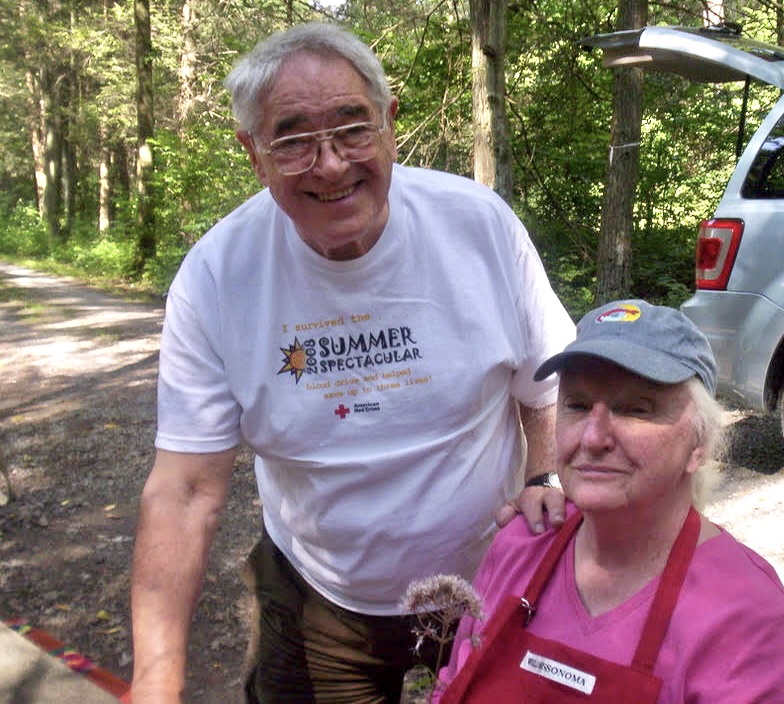By Nancy Richey
PADDC Council Member
Member of the RAISE Family Caregiving Advisory Council
It’s November, which means it’s National Family Caregivers Month. Last week, President Biden honored family caregivers for all they do for the nation with a Presidential Proclamation.
In President Biden’s opening statement, he said, “How we treat our children, parents, and loved ones and how we value those who care for them are fundamental to who we are as a Nation. During National Family Caregivers Month, we honor the Americans who lift up our communities and our Nation by providing dignified, professional, and invaluable care to the people we cherish the most.”
Last year, the Administration on Community Living (ACL) issued the first-ever National Strategy to Support Family Caregivers. The National Strategy is the result of three years of intense focus and collaboration between 22 federal agencies and 15 voting members from across the country who reflect the diversity of family caregivers and people who receive support. The work was united around a shared goal of ensuring that family caregivers have the support and resources they need to maintain their own well-being while providing crucial supports to their loved ones. This summer, a new cohort of 15 voting members were sworn in to serve over the next three-year term. In September, the first meeting of this term was held jointly with the RAISE Family Caregiving Advisory Council and the Advisory Council Supporting Grandparents Raising Grandchildren.
Referred to as a “Roadmap to Change”, the National Strategy outlines nearly 350 actions that the federal government can take, and more than 150 actions states and local communities can consider in supporting family caregivers, those who provide the overwhelming majority of long-term care in our country. Now the work of the RAISE Family Caregiving Council focuses on putting those recommendations and strategies into action.
Why is this important? The statistics are just the beginning of answering why:
- One in five Americans are serving as family caregivers at any moment.
- 55 million families are caring for older adults or people with disabilities.
- Five million are caring for ill or wounded veterans.
- Seven million grandparents are raising their grandchildren when parents are not able.
Clearly, families are the backbone of our nation’s long-term support and care for people. With that in mind, the National Strategy, and the resulting hundreds of recommendations it proposes focus around five main goals:
- Increase awareness and outreach,
- Build partnerships and engagement with family caregivers in state, territorial, tribal and local planning,
- Strengthen services and supports,
- Ensure financial and workplace security, and
- Expand data, research and evidence-based practices.

Nancy Richey’s parents – Bert and Ray Fisher.
My personal lived experience, like so many of us, includes supporting and caring for elderly parents in the later years of their lives. I am grateful for having had the privilege of caring in that way for my loved ones. However, supporting my son with intellectual disabilities throughout his childhood and now young adulthood is quite different. Going forward, as one of only a few voting members on the RAISE Advisory Council who represents this experience and perspective, I feel it is important as the Council’s work continues to put the recommendations into action, that I point out the differences. For example, for parents of a person with an intellectual disability, this is a lifelong role starting at birth or early diagnosis of a disability. I feel the caregiving role itself is also very different. Supporting feels like a better descriptor than caregiving, yet I do understand the need to find a term that is common to most families represented in the work.

Nancy Richey’s son Dan.
One thing we know is that systems cannot adequately support people alone. Nor should families be expected to do it alone. We need our communities and all who touch families’ lives to be involved in supporting people with disabilities and the families who support them. Here in Pennsylvania, we are well ahead of other states in making this happen. The Office of Developmental Programs (ODP) has been actively engaged with the National Community of Practice of Supporting Families Throughout the Lifespan since 2016. The state Community of Practice supports counties and communities to develop approaches that make sense and work at the local level. Referred to as “Regional Collaboratives”, people working in the field as well as community partners are coming together for make it happen. An interactive map shows specific actions happening across the Commonwealth. In addition, and under the support of ODP, the PA Family Network, a team of dedicated family advisors across the state, provide peer-to-peer workshops and mentoring to assist and empower families and self-advocates to navigate systems and achieve everyday lives of their choosing.
Xavier Becerra, Secretary of the US Department of Health and Human Services, a family caregiver himself, is passionate about this commitment to support families across the country with great intention. In his words, “I know that we will create a better future for our American families because we will do it with love, understanding, experience and, without a doubt, with the grit and determination that every loved one brings to caregiving for their family.”
Having been sworn-in in July and attending my first meeting in September, I look forward to the next steps in the work of the RAISE Family Caregiving Advisory Council. Currently the Council is establishing sub-committees to dig into the recommendations and put the wheels in motion. I am honored and so grateful to be involved with this exciting work at the federal level.
